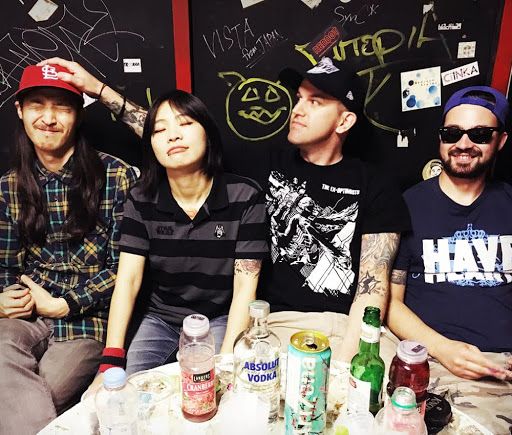What will happen to Hong Kong in 10 years?
This is the question filmmakers explore in the controversial film “10 Years,” which won the Best Picture prize at the Hong Kong Film Awards (the country’s equivalent to the Oscars) earlier this year and which had its U.S. debut at the 15th annual New York Asian Film Festival earlier this month.
Set in 2025, “10 Years” is made up of five short stories each depicting a dystopian version of Hong Kong where violent protests, government espionage and forced cultural assimilation are woven into the fabric of everyday life.
Political intrigue is the name of the game in the short “Extras,” a story about gangsters who are hired to kill local government leaders in order to incite widespread panic and drum up support for a new security law. Meanwhile, “Dialect” imagines the city stripped of Cantonese, its de-facto mother tongue, and illustrates how losing your language can mean losing your identity.
In the chilling vignette “Local Egg,” children in Maoist Red Guard uniforms patrol (a clear reference to the 1960s Cultural Revolution) the city in search of banned goods. Eventually they bust a shopkeeper who is guilty of advertising his eggs as “local,” which is forbidden both as a word and as a concept in this Hong Kong.
But could any of these scenarios actually happen? The filmmakers certainly seem to think so.
“These predictions are all grounded in the reality today so there is a high probability that it might actually happen,” said Ng Ka-leung, who directed “Local Egg.”
For Ng, who was born and raised in Hong Kong, seeing the city’s core values regress over the last decade was the catalyst for his story. He has witnessed firsthand how politics, human rights and freedom of speech, “all of which were aspects that the people took pride in,” have seen an “undeniable disruption.”
Ng is referring to the Umbrella Movement, a series of spontaneous pro-democracy protests spearheaded by university students in 2014. The movement, which takes its name from the umbrellas the demonstrators used to protect themselves from tear gas, ultimately failed in achieving its two goals of removing the country’s pro-Beijing leader Leung Chun-ying from office and installing democratic elections.
However, it did inspire the filmmakers. According to producer Andrew Choi, original script ideas were changed to include elements of the movement in the final version of the film.
Made on a shoestring budget of around $70,000, “10 Years” resonated with the Hong Kong community long before it hit movie theaters, with most of its crew made up of volunteers who supported the film’s powerful message.
Since its premiere last December, the film has become a surprise box office hit, earning more than $800,000, before it was suddenly pulled from theaters due to “scheduling issues.” Many believe Beijing authorities were responsible, especially after a state-controlled newspaper deemed the film a “thought virus.” The state-run television and social media also opted not to broadcast the Hong Kong Film Awards in the mainland.
But this has not stopped community groups, educational institutions, churches and other grassroots groups from continuing to show the film at well-attended public screenings. “They see the film as a platform for emotional release and to initiate different types of reflection and discussion,” Ng said.
Though the film takes place in Hong Kong, Ng said its themes are universal. “The core values that we strive for, regardless of nationality, are values that we should all consider as part of our future.”









